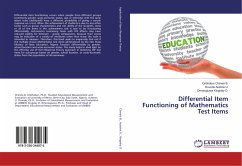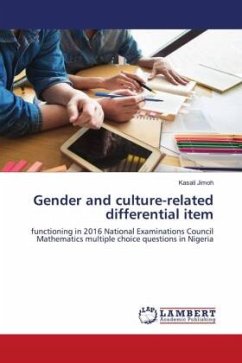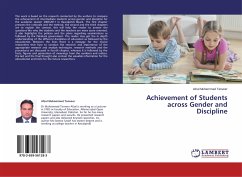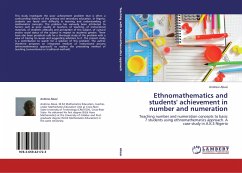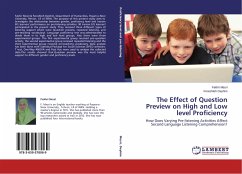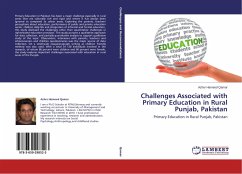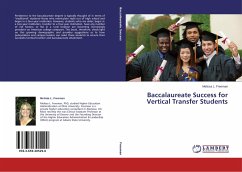Differential item functioning occurs when people from different groups (commonly gender, socio-economic status, age or ethnicity) with the same latent traits (ability/skill) have a different probability of giving a certain response on a test. When the achievement of students is due to any other factor such as group characteristics and not ability of the students, some or all of the items in the achievement test is said to be functioning differentially. Instruments containing items with DIF effects may have reduced validity for between - group comparisons, because their scores may be indicative of a variety of attributes other than those the scale is intended to measure. Therefore, this book seeks to empirically find out if the multiple choice Mathematics test items administered by the Edo State Ministry of Basic Education, Nigeria function differentially by gender, school location and socio-economic status. This study helps to shed light on the effective use of Item Response Theory approach in detecting DIF test items for sub-groups based on gender, school location, or socio-economic status from the population of all examinees.
Bitte wählen Sie Ihr Anliegen aus.
Rechnungen
Retourenschein anfordern
Bestellstatus
Storno

